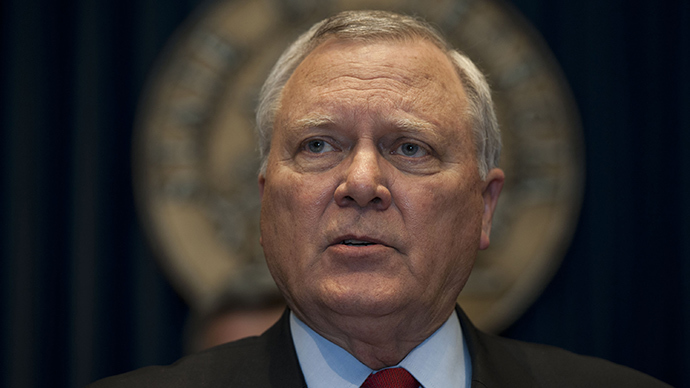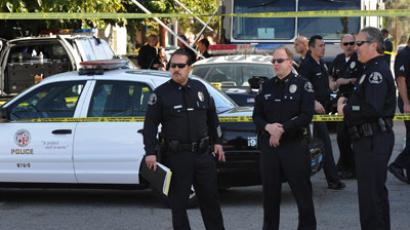Guns everywhere: Georgia governor makes his state the most firearm-friendly

Georgia Gov. Nathan Deal has signed a new law into effect – nicknamed the “guns everywhere bill” – that allows individuals to carry weapons into bars, schools, and even some churches and government buildings.
Officially titled the “Safe Carry Protection Act of 2014,” the bill easily sailed through the state legislature and was signed by Deal on Wednesday. The bill doesn’t officially go into effect until July 1, but it will permit those with gun licenses to carry weapons into numerous public spaces, even parts of the airport – which, in Atlanta, is the busiest in the US.
If a bar owner does not want to allow guns into their establishment, they will have the ability to “opt out” – a change from previous law which stated bars had to “opt in” to permit firearms. Meanwhile, church leaders who don’t mind having visitors enter with weapons will be able to opt in as well.
"Our state has some of the best protections for gun owners in the United States,” Deal said as he signed the bill, according to USA Today. “And today we strengthen those rights protected by our nation's most revered founding document.
“People who follow the rules can protect themselves and their families from people who don’t follow the rules,” he added. “The Second Amendment should never be an afterthought. It should reside at the forefronts of our minds.”
The bill was supported by gun-rights activists and the National Rifle Association, which called it "the most comprehensive pro-gun reform legislation introduced in recent history."
Opponents like the gun-control group Americans for Responsible Solutions, however, called the bill the most extreme gun law in the United States, claiming it "moves Georgia out of the mainstream."
"Among its many extreme provisions, it allows guns in TSA lines at the country's busiest airport, forces community school boards into bitter, divisive debates about whether they should allow guns in their children's classrooms, and broadens the conceal carry eligibility to people who have previously committed crimes with guns," ARS senior advisor Pia Carusone told CNN.
Other groups oppose the fact that the bill will let people carry firearms into government buildings that don’t feature security measures like metal detectors. This includes public libraries, city halls, recreational centers, and fire stations. Notably, guns will still not be allowed at the state Capitol.
The bill also removes obstacles previously put in place to keep those convicted of select misdemeanors from acquiring gun permits. This detail was opposed by law enforcement agencies, which will not be allowed to detain individuals "for the sole purpose of investigating whether such a person has a weapons carry license."
Speaking with the Atlanta Journal-Constitution, Deal defended the bill, arguing that the more controversial aspects were dropped – including a provision that would have allowed guns on campuses across the state.
“There are always opportunities for people to use any piece of legislation as a political tool if they don’t like it,” he said. “But there was bipartisan support for the bill. The main story that should come out of it is the final product is significantly different from earlier versions.”
Still, at least one church leader in Georgia – Rev. Raphael Warnock – seemed perplexed by the law, telling CNN, "No one asked for this bill but the gun lobby, and still, we're here.” He noted that the majority of the churches in the state are trying to deal with issues like education and healthcare, not guns.
"I don't know of a single pastor in the state of Georgia who has been lobbying to have guns brought into their churches," he said. "When we say pass the peace, we mean P-E-A-C-E, not the P-I-E-C-E."














